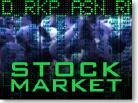|
Longer NYSE hours: a plus?
|
 |
May 25, 1999: 8:29 p.m. ET
Experts look at evening trades and mull pros and cons for pros and amateurs
|
NEW YORK (CNNfn) - Longer trading hours at the New York Stock Exchange could mean more eye-popping profits for investors.
But the lure of even-greater riches, market experts and psychologists say, masks another important byproduct of a longer trading day at the Big Board -- the price in human terms.
On the one hand, experts warn that longer trading hours will mean longer work days for many investors and market professionals. However, a longer trading day could also allow some people who are not able to trade stocks during the work day to come home and place their orders before the closing bell.
Richard Grasso, the New York Stock Exchange's president, on Monday turned up the volume on the buzz about extended trading hours, floating the prospect of a late-afternoon and evening session as early as this summer.
Day traders writ larger?
Many observers say a longer trading day is likely to be felt within the trading world, among the espresso and cuff-links crowd members on Wall Street.
Closer to home, however, and an outgrowth of the market boom of recent years, are the day traders -- the numbers of which could swell as market hours expand, analysts say.
Riding wild swings in Internet-related stocks, day traders are often market newcomers who have been known to leave their jobs or take out second mortgages to profit from tiny moves in stock prices.
Their obsession about stocks is contagious, and longer market hours could feed its spread.
"The cult of equities we're in right now has already had a big impact on the culture," said Liz Ann Sonders, a money manager at Avatar Associates & Co.
Extended trading hours, she said, could be "a sign that speculation is coming to excess. It will continue to bring people to the trading arena."
Top regulators, and even some titans of the brokerage industry, have expressed concerns about the rise of day trading -- and its uncanny similarities to another U.S. pastime: gambling.
Cons ... and Pros
Outside of that insular realm of day trading, analysts say, the fallout will be hard to divine. There are advocates and opponents grappling with how small-fry investors will be affected.
The gist of the debate is a new trade-off that longer hours would present. On one hand, investors could take their time to evaluate their moves, but one the other, it might chisel away at valuable family and recreational time.
For groggy-eyed investors and small-shop brokers on the West Coast, there could be an important lifestyle benefit. The Wall Street day runs from 9:30 a.m. to 4 p.m. New York time -- 6:30 a.m. to 1 p.m. for West Coasters.
"It would probably mean we could work normal hours here on the West Coast," said Edward Fong, a spokesman for CalPERS, or the California Public Employees' Retirement System, the nation's biggest fund manager.
East-Coast investors, who typically work during the 9:30-4 trading day, don't always have the time to watch stocks. A longer day of trading would mean extra time to consider market moves.
An obsession about stocks
The primary downside, says one top market psychologist, is that investors might go too far and break away from their healthier habits, by obsessing about stocks a la day traders.
"It could increase people's anxiety," said Dr. Richard Geist of the Institute of Psychology of Investing. "Extending the trading hours is going to keep them focusing on the market."
For their part, front-line brokers and traders seem to be reserving judgment about possible effects of more trading hours on their lives. But the commitment to clients isn't likely to wane.
"For those clients who want to participate in after-hours trading, we will be at the forefront of providing it to them," Merrill Lynch (MER) spokesman Jonathan Humphreys said.
But that prospect of more-demanding work hours, warned Geist, is likely to cause higher levels of fatigue that are often a precursor to a rise in on-the-job mistakes.
-- by staff writer Jamey Keaten
|
|
|
|
|
 |

|

